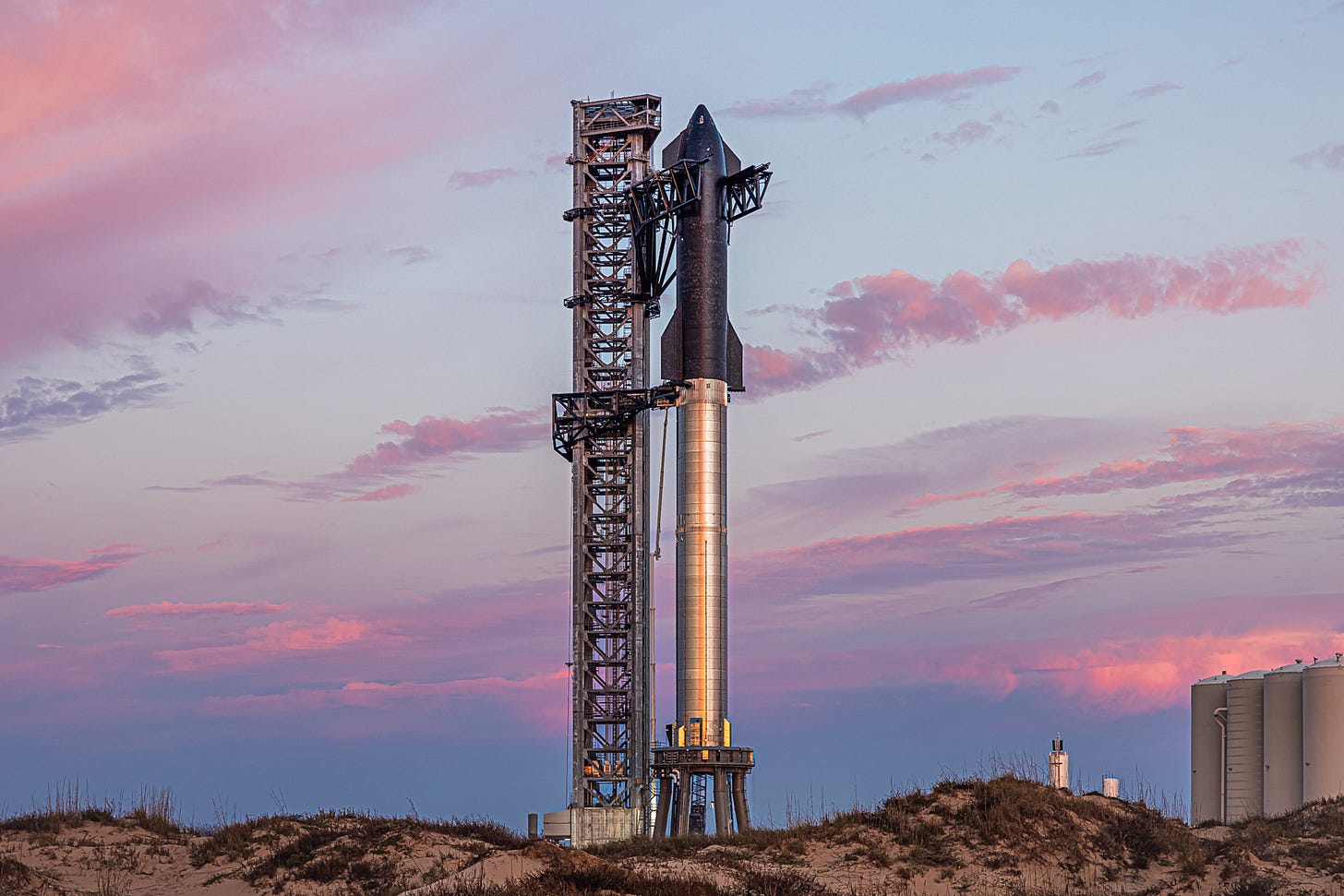🚀 Looking forward: SpaceX and Starship provide an aspirational opportunity for America
Let's light this candle — and ignite our national ambition
Quote of the Issue
“The surface of the Earth is the shore of the cosmic ocean. On this shore, we've learned most of what we know. Recently, we've waded a little way out, maybe ankle-deep, and the water seems inviting. Some part of our being knows this is where we came from. We long to return, and we can, because the cosmos is also within us. We're made of star stuff. We are a way for the cosmos to know itself.” - Carl Sagan
The Essay
🚀 Looking forward: SpaceX and Starship provide an aspirational opportunity for America
A frozen valve on Starship’s Super Heavy booster meant SpaceX had to scrub today’s orbital launch attempt of the most powerful rocket ever built. An obvious bummer. The upside, however, is that schools across America now have at least a couple more days to make sure every classroom has a live NASA or SpaceX feed of the next launch. While only a test flight, a successful launch would be America and humanity’s most important step forward since Apollo 11 toward becoming a true spacefaring and multiplanetary civilization. Some good context from Kenneth Chang at the New York Times:
Starship could lead to a new upheaval in the economics of sending things to space because, for the first time, the entire rocket would be reusable. … If a rocket were entirely reusable, the cost of each launch would mainly be the fuel, and Mr. Musk said a cost of a Starship launch could fall to under $10 million, or under $100 per kilogram for a payload weighing 100 metric tons. For decades, the cost of launching something into space remained stubbornly expensive — some $10,000 per kilogram or so. … With the lower launch costs, the business case for new uses for space became profitable. … With Starship’s larger capacity and purported price per launch, people would worry much less about making everything going to space as small and as light as possible. Failure would become an acceptable option, because the cost of sending up a replacement would not be prohibitive.
Given the importance of this launch, I was happy to see this tweet from a McAllen, Texas, grade school:
Parents: If your kid’s classroom wasn’t set up this morning like the one above, talk to the school, ASAP. Not only does Starship provide a teachable moment — current events, economics, history, science — but also an aspirational one. For their entire lives, these kids and their older classmates have been fed a diet of dystopian images about the future: out-of-control AI, chaotic climate, extreme inequality, and plagues that will either kill you or zombify you. (One thing these kids might have going for them is that many are probably Hispanic immigrants or children of immigrants, a group that tends to be among the most optimistic Americans.) Starship provides an opportunity to present a different vision of what the future can be. What’s more, if I were, say, a sixth-grade teacher, I might warm up my classroom during the next launch window with this video:
To create a future of greater abundance and opportunity, futurist Herman Kahn (the patron saint of this newsletter) said back in the 1970s, “The single most important thing that could be done would be to substitute reasonably accurate positive images of the future for the depressing images that now prevail, especially in the Advanced Capitalist nations.”
And right now, Elon Musk and SpaceX are doing what Hollywood refuses to do. It doesn’t surprise me, for example, that nearly half of Americans are very or somewhat concerned about the possibility that artificial intelligence will cause the end of the human race on Earth, according to new YouGov polling:
Keep reading with a 7-day free trial
Subscribe to Faster, Please! to keep reading this post and get 7 days of free access to the full post archives.



